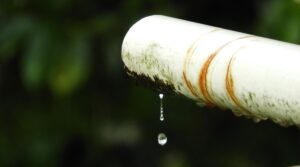Plumbing
How to Prevent Costly Water Leaks: Essential Maintenance Tips for Homeowners

Home ownership is a great thing, but at the cost of maintaining the house. Of all the infinite number of sorrows that the homeowner must suffer, the most painful and costly ones are water leaks. Avoid these types of leaks in the first place at a costly price later on of so much sorrow and money. In this article are valuable maintenance rituals to guide and instruct you into protecting your investment from costly water damages.
The Silent Danger: Understanding Where Leaks Will Likely Happen
Pipe leaks will not, however, present themselves as grand bursts; they will begin life as small drips or subtle seep. To avoid them, however, one should observe where leaks are likely to begin. Faucets, toilets, pipes, and domestic appliances such as washing machines and dish washers are prime locations. Frequent observation in those zones might detect signs of premonitory trouble such as dampness, rusting, or mildew.
Faucet and Fixture Vigilance: Slip and Drip Prevention Neglect
Dripping faucets are minor annoyances but potentially wasting a vast quantity of water and signaling a much bigger problem. Periodic checking and tightening loose components will prevent drips. Easy DIY repair of replacing old washers and O-rings will save you cash and prevent water damage. Showerheads and other components also require checks for mineral deposits and leaks. Mineral deposits cause leaks and blockages, and routine vinegar soak can provide optimal performance.
Part of the significant sources of recurrent leaks are toilets.
Dripping toilets will cost hundreds of gallons a day in water waste. Check the flapper, fill valve, and float every time on correct functioning status. A simple dye test will even let you know where the sneaky leaks are: drop some food coloring in the tank and observe. If you already have the bowl stained before flushing, then by all means, getting rid of old parts is not excessively taxing or costly.
Pipe Protection
Freeze and Corrosion Protection in a wall or under a floor is one of the largest causes of leaks. Leaky pipes exposed need to be checked periodically for rust, corrosion, or damage. Seal crawl space pipes or basements to prevent pipes from freezing and bursting in freezing weather. Leaks can be minimized with new extended pipes such as copper or PEX.
Appliance Awareness: Dishwashers and Washers Care
Water hoses are in sync with washers and dishwashers and are extremely likely to be a leak. Inspect hoses and fittings regularly for bulging, cracking, or signs of leakage. Replace old or deteriorated hoses with stainless steel reinforced hoses with improved hose reinforcement systems decreasing bursting hazards by a very high percentage. Inspect regularly in the vicinity of these appliances for coloration indication of the water or moisture to detect leaks early enough.
Water Heater Hacks: Leaks Prevention and Lifespan Extension
Leaks are caused by corroded or sedimented water heaters. Flushing the water heater periodically to drain off sediment will extend its lifespan and prevent leaks. Inspect the pressure relief valve to check if it is in proper condition. In case of any sign of leaks or rust, act promptly to prevent further damage.
Sump Pump Geniuses: Basement Flooding Prevention
For house basements, there must be a sump pump to prevent water damage. Run the sump pump occasionally so that it’s operating at full capacity. Drain the clog in the discharge pipe and properly install the pump. Install a backup sump pump or battery backup system so that loss of power is prevented.
Roof and Gutter Vigilance: Directing Water Away from Your Home
Water damage on walls and ceilings from leaky roofs can be avoided by having your roof checked from time to time. Missing or clogged gutters and broken shingles can be avoided through routine roof inspections, and the water may never penetrate your house. Functional gutters also keep water from reaching foundations, thus averting water damage.
Routine Checkups and Professional Inspection: Being Vigilant in the Long Term
In addition to regular do-it-yourself inspections, regular professional plumbing inspections can keep your plumbing operating at its best by catching future issues before they become expensive repairs. Regular inspections of your plumbing system by a professional plumber can inspect your plumbing system, detect hidden leaks, and suggest repairs and maintenance.
Through these preventative maintenance guidelines, owners can reduce the possibility of costly water leaks by significant percentage points and have their homes free of water damage. Fore-warned maintenance is money that will return in dollars saved and good conscience.

















